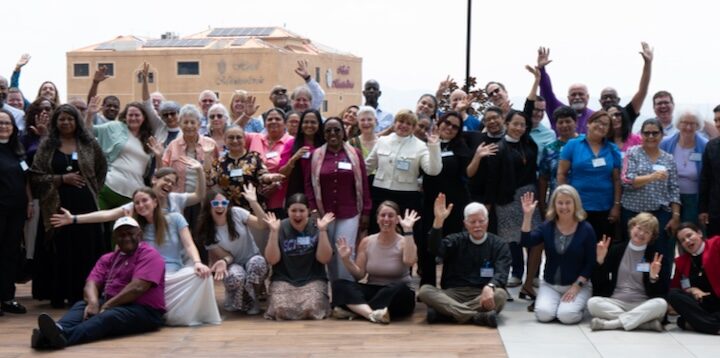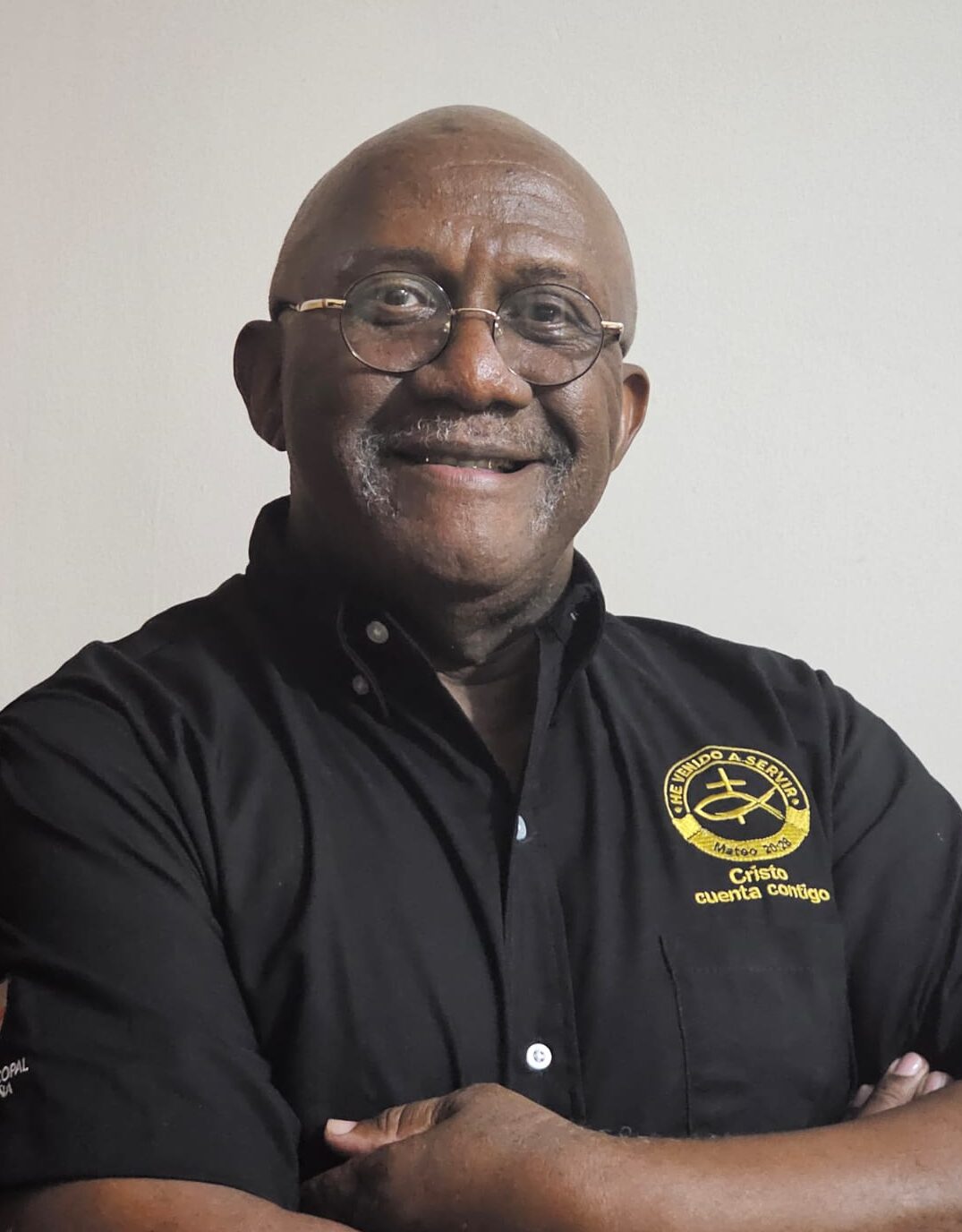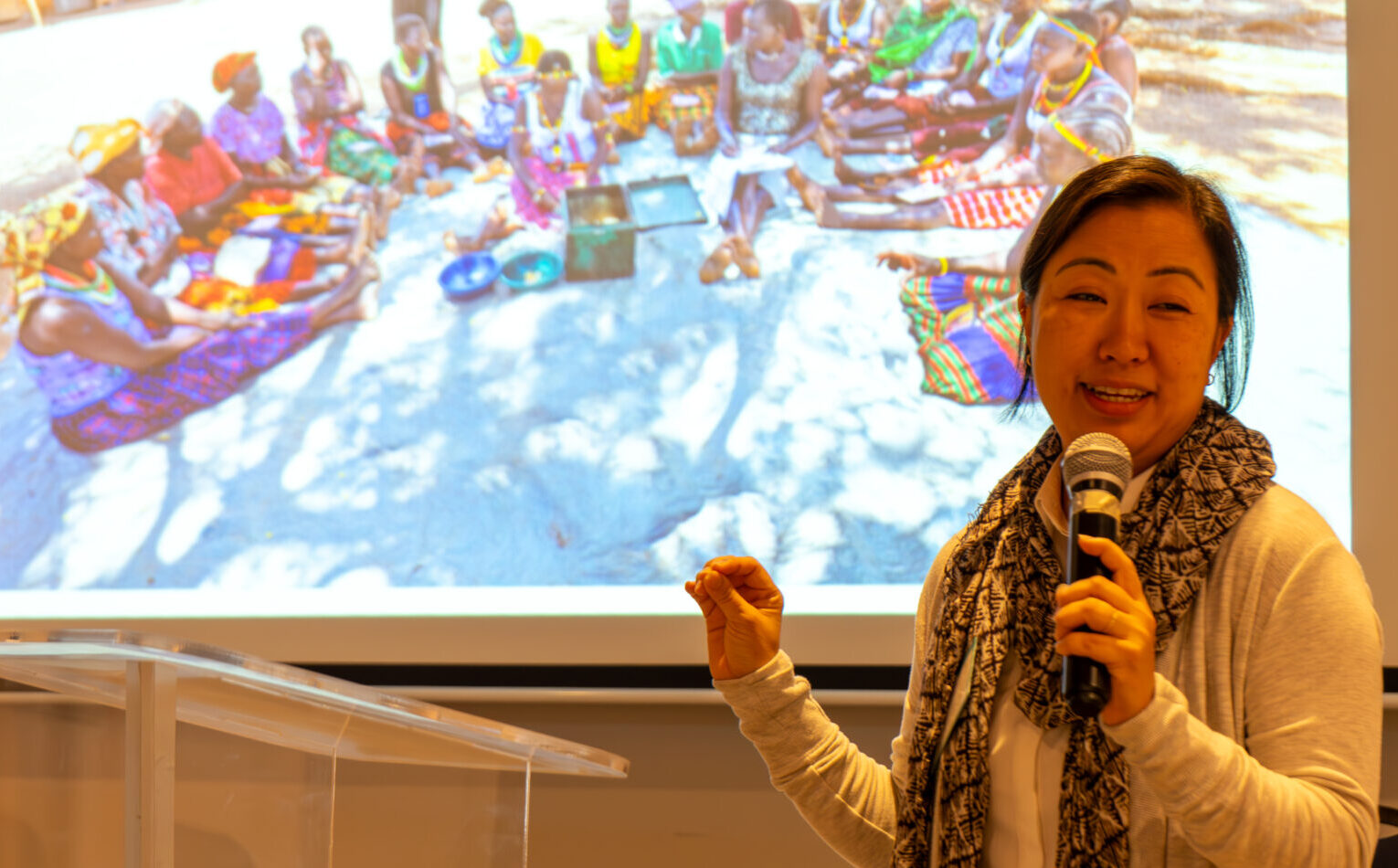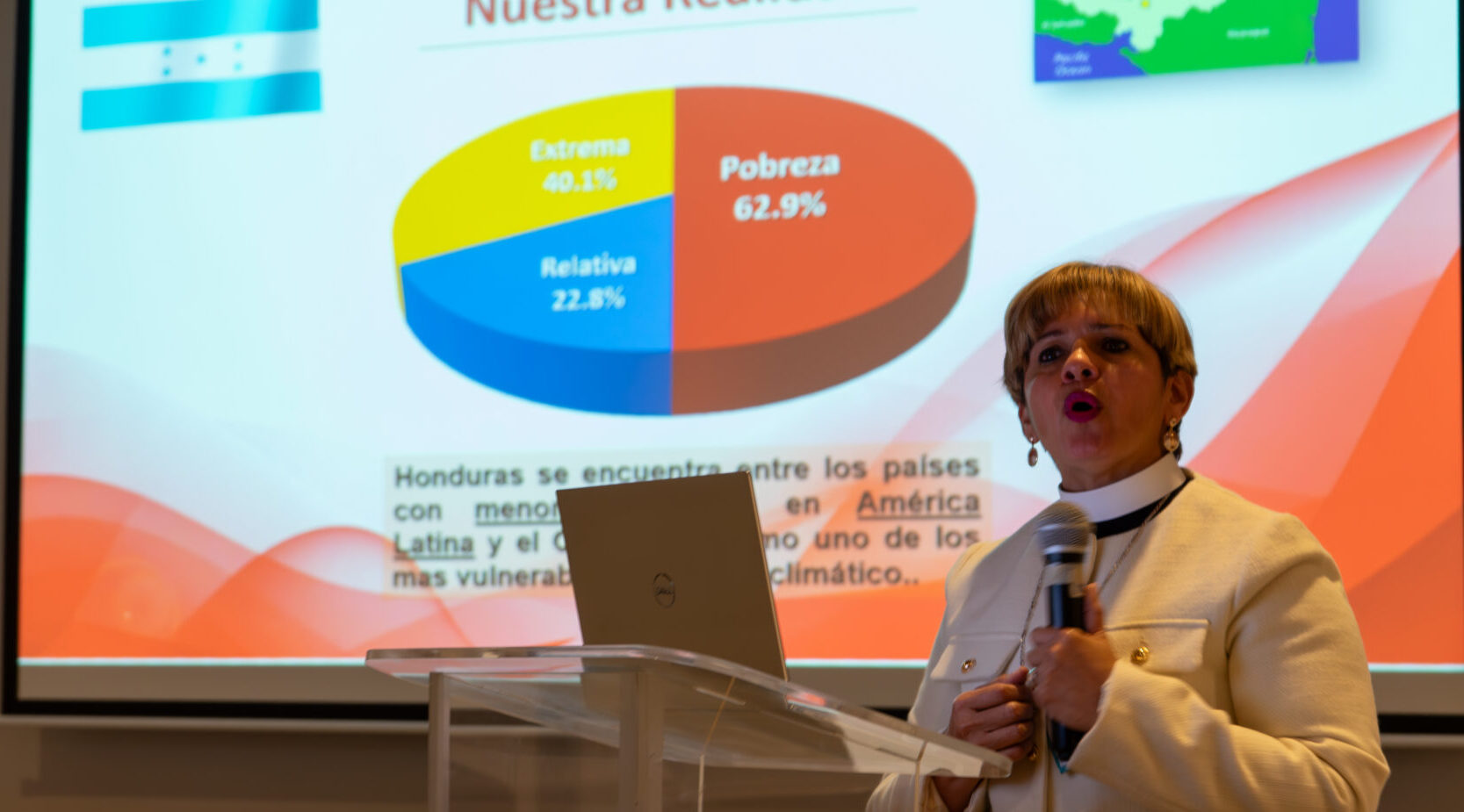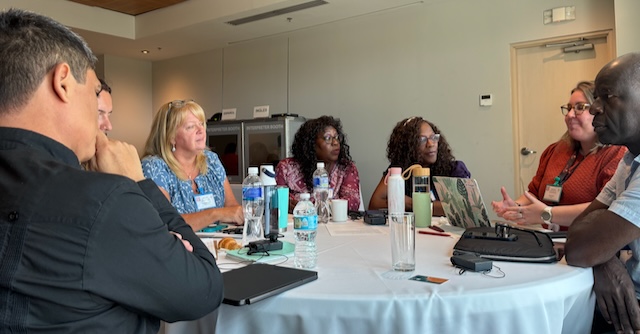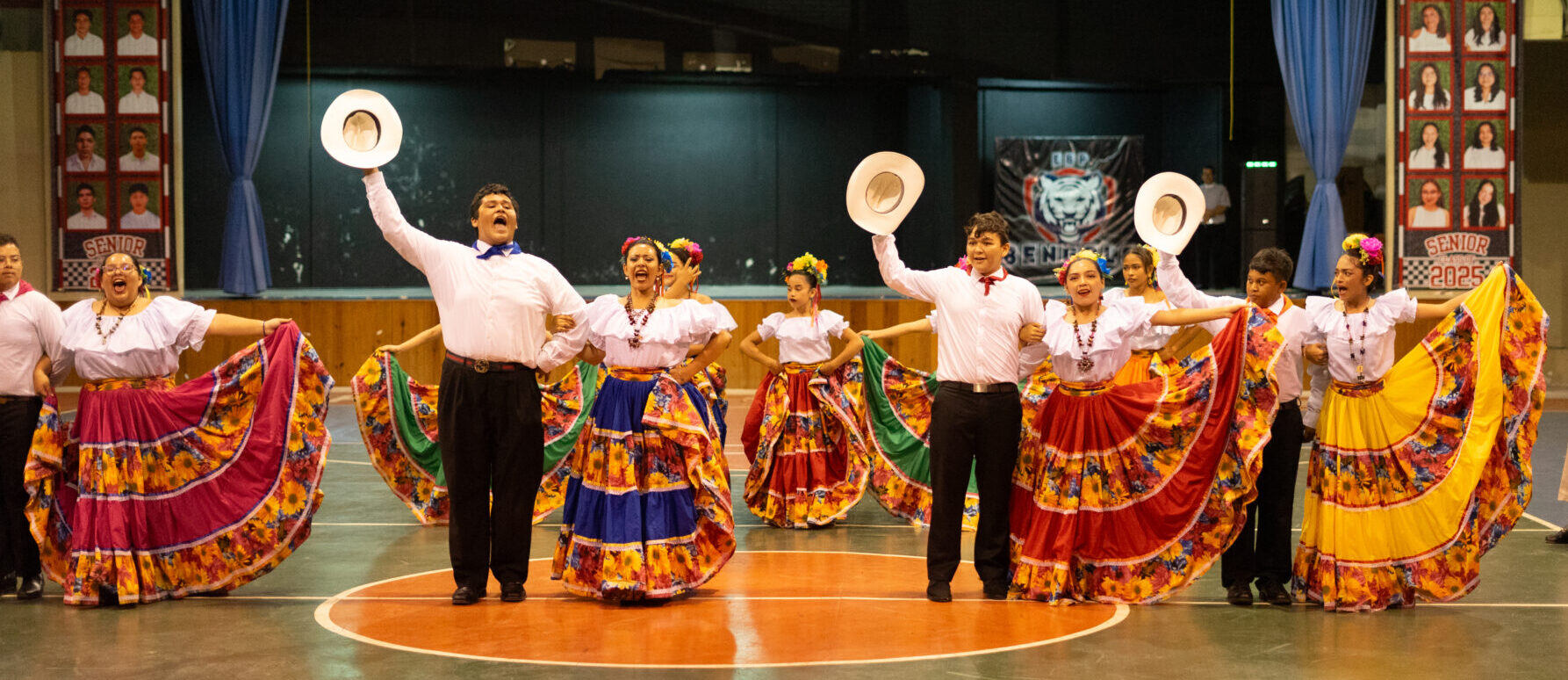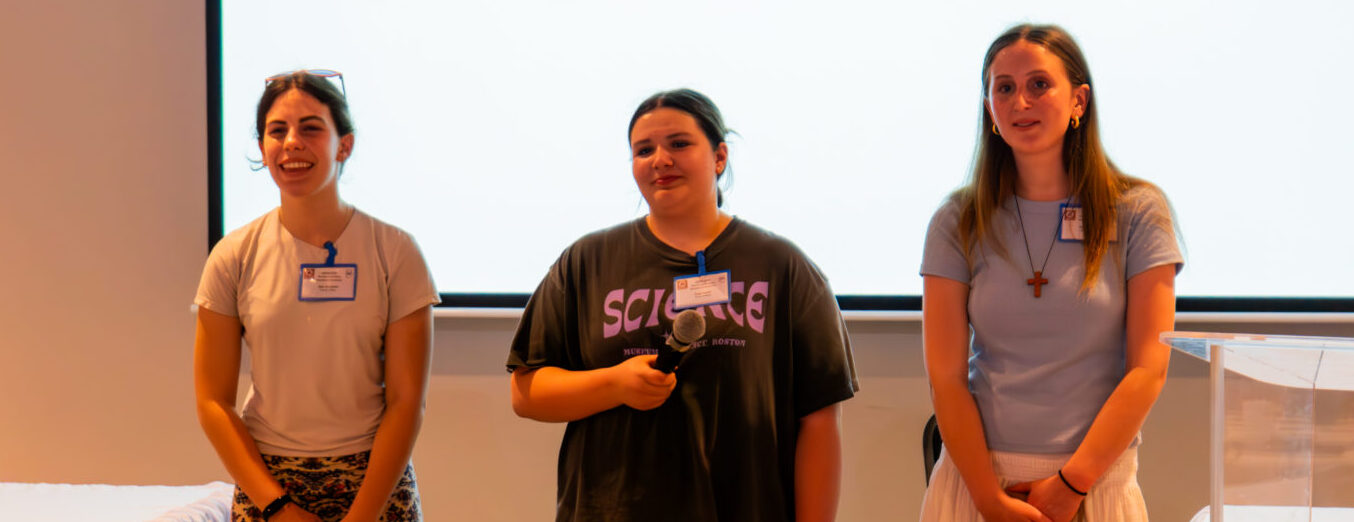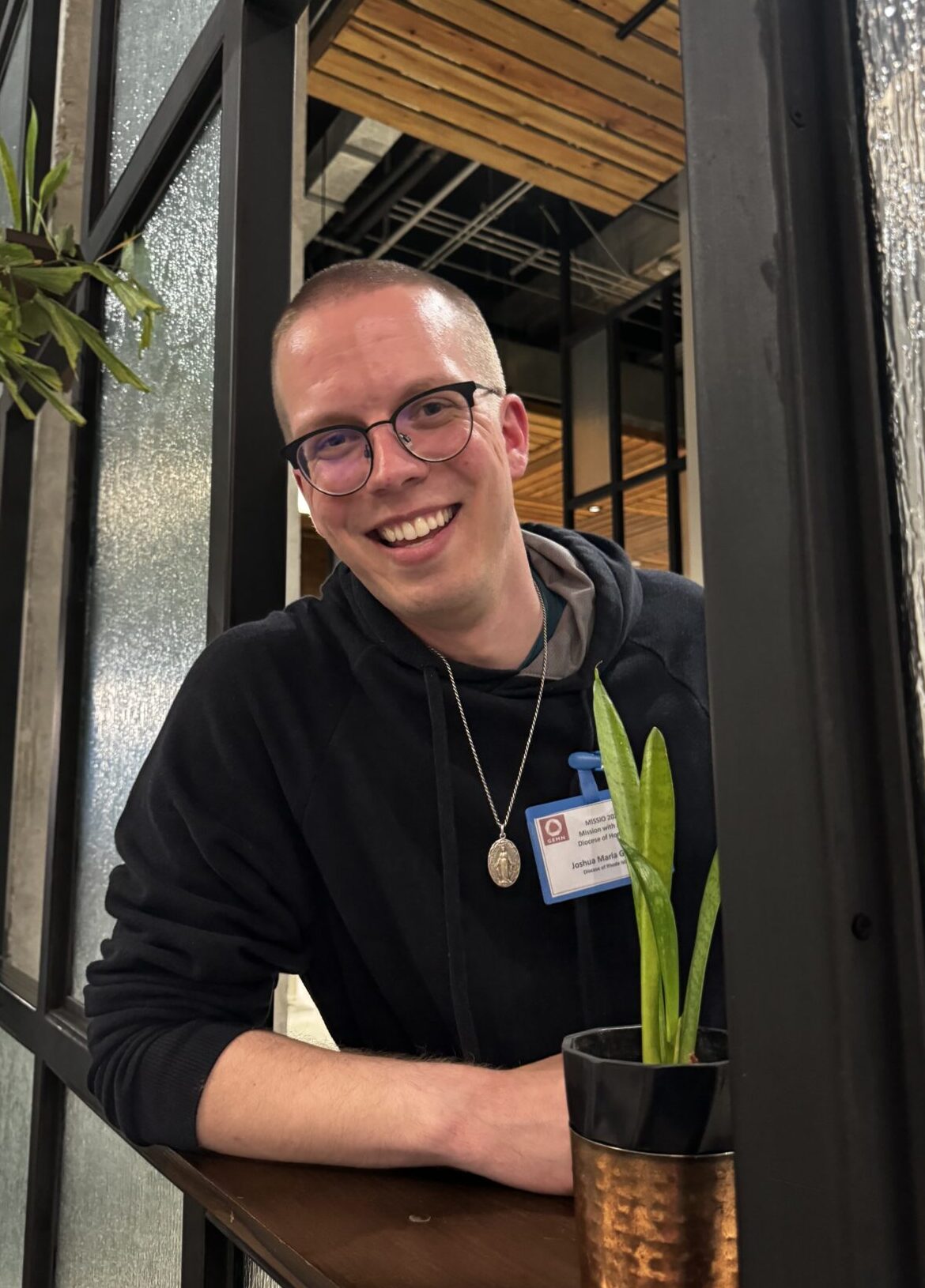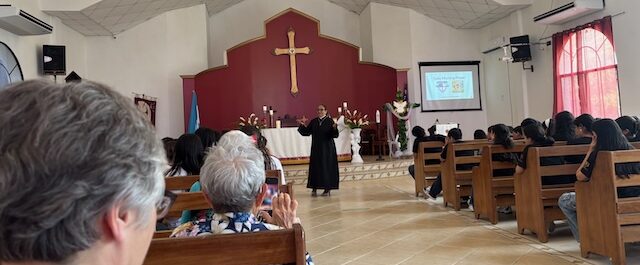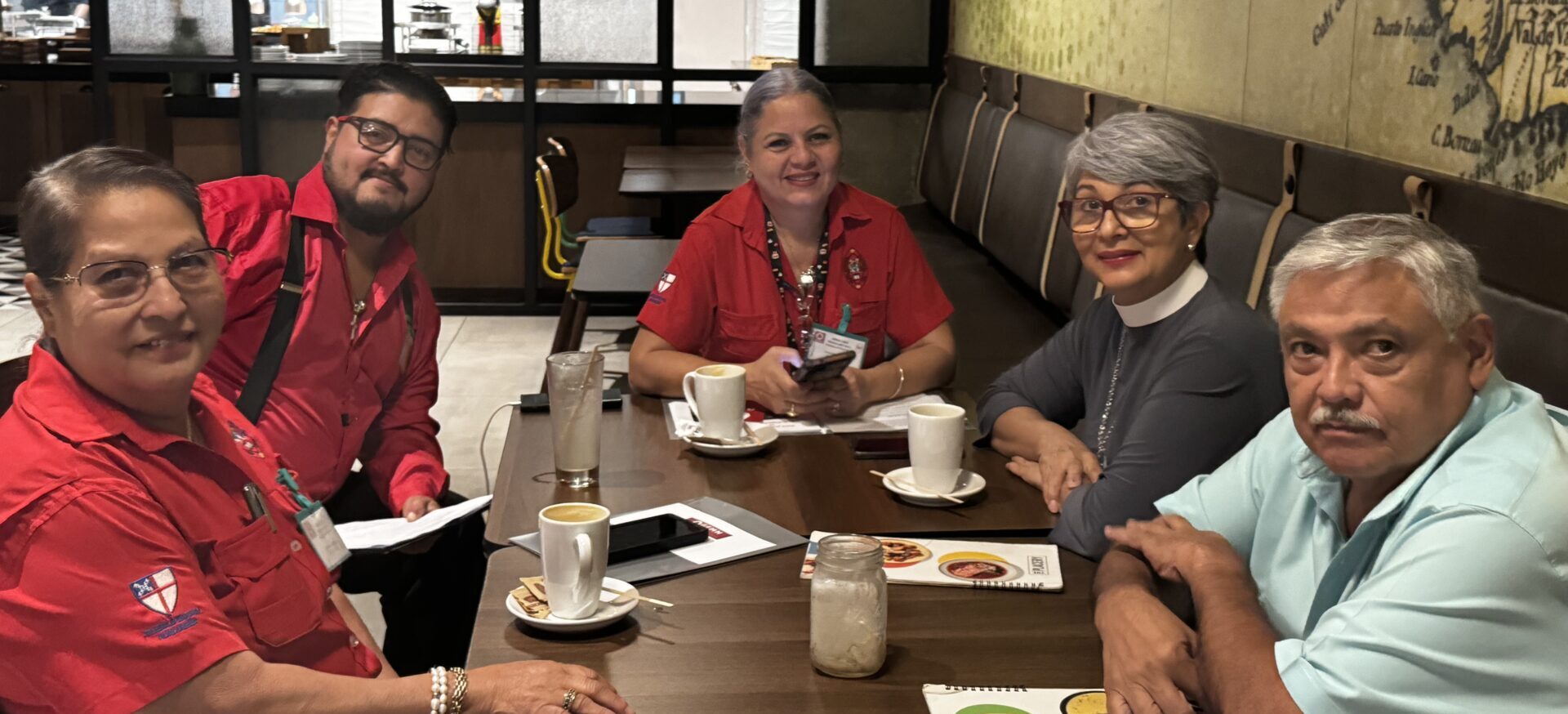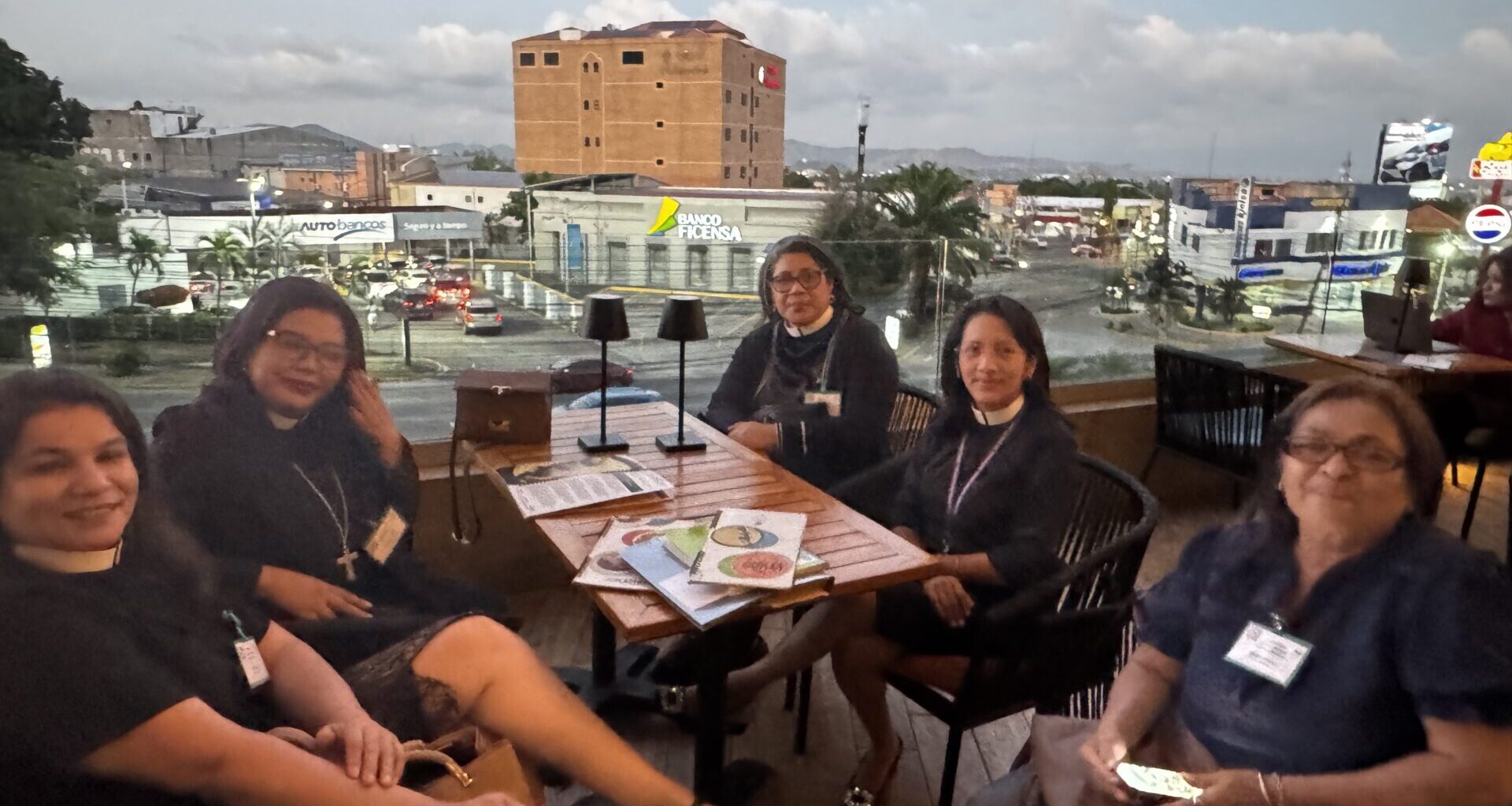“Do not leave this place unchanged!” Bishop Lloyd Allen of Honduras challenged attendees at the Eucharist held for Missio, the Episcopal world mission conference that met in his diocese, April 29-May 3.
Citing “the missional shape of Pentecost,” Allen emphasized that Christians are sent out on mission both locally and globally. He recalled a bamboo church he encountered in the Philippines during his life in the merchant marine, which in its poverty nevertheless sent evangelists over the mountains every year.
“Let’s be part of the bamboo church, maybe without many resources, but we have the gospel message, so go we must!” Allen said. “Mission begins where you stand – in homes, the workplace and the classroom.”
The Diocese of Honduras co-sponsored Missio with the Global Episcopal Mission Network (GEMN), the association of dioceses, agencies, congregations, seminaries, religious orders and individuals that this year is celebrating its 30th anniversary.
The theme of “Mission with Jesus” and the three major emphases of Evangelism, Empowerment and Climate Action were developed in the Honduras-GEMN collaboration. Each of the emphases was addressed by two Conversation Catalysts, one from Central America and one from elsewhere, and these were followed by table discussions among attendees.
Evangelism
“We are complicated, but evangelism is simple!” declared Dean Héctor Ortega of Good Shepherd Cathedral in San Pedro Sula, site of the Eucharist and a spectacular celebration with numerous cultural dances. “Praying, connecting, and sharing are the three steps,” he said.
 Reasons for evangelization, according to Ortega, include the dynamic by which the church came into being, the commandment of Jesus, love for souls; and transformation of lives and everything for the glory of God.
Reasons for evangelization, according to Ortega, include the dynamic by which the church came into being, the commandment of Jesus, love for souls; and transformation of lives and everything for the glory of God.
Methods of evangelism cited by Ortega included person-to- person encounter, door-to-door visits, mass gatherings, digital initiatives such as the GodTools online app, the Jesus Film, and church programs such as Alpha, Happening, retreats, and vigils. Cursillo has been especially instrumental in the dramatic increase membership and congregations in the Diocese of Honduras. “Let us share with the world what God has placed in our hearts,” he concluded.
“We don’t have to be a perfect Christian in order to preach the gospel,” said the Rev. Dr. Paul Rajan, GEMN president and rector of Good Shepherd Church in Wantage, N.J. Recalling his cross-cultural evangelistic and church-planting work in Karnataka in his native India, which resulted in 54 new congregations, Rajan cited three alliterative pairings as key: the messenger and the gospel’s uniqueness, the message and its universality, methods and unchangeability.
“You must take initiative in evangelism,” Rajan exhorted attendees. “You relate with people by being inquisitive about faith, family, friends, finance, fun and fragility.” He suggested the language of love and cited, as well, the Hindu and Buddhist concepts of shanti, meaning peace, and moksha, meaning liberation.
Empowerment
“Empowerment is the authority or power given to someone to do something,” said Elizabeth Kim Ha, CEO of Five Talents, which facilitates micro-enterprise development in partnership with Anglican churches around the world. “It is the process of becoming stronger and more confident, especially in controlling one’s life and claiming one’s rights,” she said in her address. “Empowerment rooted in an identity in Christ leads to transformation.”
Five Talents was formed after the 1998 Lambeth Conference, when Simon Chiwanga, at that time bishop of Mpwapwa in Tanzania, said, “I cannot go back to my country when my fellow citizens are starving.” Through the saving groups catalyzed by the organization, women who have been told they are useful only for manual labor hear the message, “You are valuable to God.”
Lack of resources is a shared understanding of poverty in Global North and Global South, but people in the South also identify poverty with shame, Ha observed, emphasizing that “shame disintegrates one’s view of oneself.” Ha said that today there are 42,000 participants in Five Talents savings groups across the world.
Savings groups are a major emphasis of the Association for the Development of Honduras (AANGLIDESH), said Canon Consuelo Sanchez, the group’s executive director. Honduras is the second poorest country in Latin America with 63 percent of Hondurans poor and 40 percent living in extreme poverty.
Empowerment involves a process of teaching and learning, where people discover their capacities and gain control over their own lives, Sanchez said in her address. The agency, which is closely aligned with the Diocese of Honduras, stresses education for economic entrepreneurship. Currently, 160 men and 565 women are enrolled in savings groups.
“How is this related to the gospel and the mission of God?” Sanchez asked, and answered, “Intrinsically!” She cited the calling that Jesus bore witness to in his reading from Isaiah 61 in Nazareth and the biblical mandates of justice, compassion and equity.
Climate Action
“Jesus said, ‘I came that you may have life and have it abundantly,’” said Bishop Julio Murray of Panama, who serves on the Anglican Environmental Network. “No one should have to accept less than life.”
“As ambassadors of reconciliation we must reconcile people with the planet and work together for repentance and transformation,” Murray said in his presentation. “The role of faith-based communities is to emphasize ethical concern for life and justice, offer a ministry of presence, affirm hope and focus on opportunities for effective action.”
Governments must fulfill their pledges to build climate resilience in vulnerable communities and provide compensation for those whose lives and communities have already been devastated by climate change, Murray said, with particular focus on island nations in the Pacific and areas affected by catastrophic drought and flooding.
Dr. Nancy Searby, a deacon, GEMN vice president and until recently a NASA scientist, spoke of how climate change had not been sufficiently considered in the companionship between her parish in McLean, Virginia, and an Anglican community in Wilunze, Tanzania. “At that time we failed to talk about climate in the long term, as in five to 20 years, so that companion work is resilient to changing environmental conditions,” she said. Now, however, the region is pursuing smart, resilient agricultural practices.
Searby encouraged Episcopalians in international companionships to consult the national climate adaptation plans submitted by countries and available on the web. As an example, she noted that South Sudan, where her new parish and many Episcopal dioceses and congregations are involved, has such a plan. She looks forward to talking with the companion Diocese of Ezo about climate action.
Searby suggested that Episcopalians check out the Lambeth Calls from the 2022 conference, especially the one concerning the environment and sustainable development; get involved with the Anglican Communion Forest, which, for instance, has paired Ottawa with Uganda; and consult the reports of the Intergovernmental Panel on Climate Change (IPCC) for the latest science and the suggested actions at global, regional and national scales
“We’re one of the countries really, really affected by climate change,” said Bishop Allen during the question period, citing annual increased annual flooding and ranchers slaughtering their cattle for lack of feed. Reporting from table groups, other Hondurans testified to the stresses of climate change and the inadequacy of measures currently being taken.
Missio Activities
The Mission Formation Program was held all day before the evening opening of Missio, with 24 attendees learning about biblical foundations of mission, mission history and theology, cultural dynamics, healthy short-term mission designs, mission spirituality, and relationships with dioceses and provinces.
Missio attendees visited several missional sites around San Pedro Sula, Honduras’s second largest city after the capital of Tegucigalpa. Groups experienced the work of Our Little Roses Home for Girls, the Siempre Unidos HIV/AIDS Clinic, Iglesia San Pablo, and Holy Spirit Church and School in Tela.
Several seminars were offered during Missio. The Rev. Glenda McQueen, the Episcopal Church’s partnership officer for Latin America and the Caribbean, spoke on “The Episcopal Church’s Mission in Latin America.” GEMN treasurer Mr. Bill Kunkle presented about “Best Practices for Short-Term Mission.” Paul Rajan spoke on “Use of the Cultural Awareness Inventory.” GEMN executive director Canon Dr. Titus Presler discussed “Networks: A 21-century Model for Mission Support.”
About 35 of the 85 Missio attendees were from Honduras. Other countries represented included Belize, Brazil, England, Dominican Republic and Haiti, with the remainder coming from the United States. Three youth from the Diocese of Maine attended both Missio and the Formation Program and made a presentation to attendees.
At the GEMN Annual Meeting, Rajan, retired Bishop Alan Scarfe of Iowa, and Canon Dr. Helen Van Koevering of the Diocese of Lexington were reelected to the Board. Also elected were the Rev. Sister Sarah Margaret of the Society of St. Margaret, the Rev. Jaime Briceño of the Diocese of Chicago and Mr. Troy Elder of the Diocese of Southeast Florida.
Responses
In observance of GEMN’s 30th anniversary, the GEMN Board led a closing session of table groups discussing the role of GEMN, and responses included a number of comments about Missio:
“Meeting in person is better than online” (Missio was held online in 2021, 2022 and 2024).
“I enjoyed the Circle of Sharing at the beginning” (at which each attendee introduced themself in one minute).
“Can we continue in conversation about evangelism, youth empowerment and climate action?”
“Meet again in 3-4 months – the gap between Missio conferences is too long.”
“Sharing stories and experiences in mission has been key.”
“We were blessed to meet in Honduras during our 30th anniversary year,” commented GEMN executive director Titus Presler. “Missio reaffirmed the mandate for world mission in Jesus’ name, the centrality of companionship and the connecting role of GEMN.”
Said GEMN vice president Nancy Searby, “Missio 2025 was a wonderful experience of working in close collaboration with the Diocese of Honduras. We so appreciate their hospitality and their work in educating the next generation. The topics we chose together resonated with me, and I left inspired.”
“Missio 2025 in Honduras was sacred ground for the themes we chose,” said GEMN president Paul Rajan. “I sensed the readiness of the ground to receive the seedlings of evangelism empowerment and climate action. It was a holy exercise for world mission leaders to gather on such ground and grow in the mission of God.”
Missio 2026 will be held April 14-17 at Mercy Center in Burlingame, California, about 15 minutes from San Franciso Airport. The Mission Formation Program will be offered on April 14. GEMN tries to meet outside the USA every three years.
GEMN’s purpose is to gather, inspire and equip people to participate in God’s global mission. Its core values are humility, inclusion and companionship.
